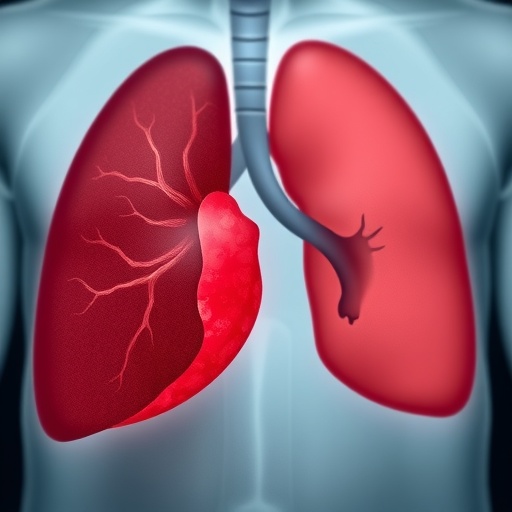PROTECT YOUR DNA WITH QUANTUM TECHNOLOGY
Orgo-Life the new way to the future Advertising by Adpathway
In recent years, the mental health landscape has undergone significant transformations, with innovative approaches emerging to tackle complex psychological issues. One such area gaining attention is the field of non-suicidal self-injury (NSSI) disorder, a condition affecting numerous individuals worldwide. In an increasingly digital age, awareness surrounding mental health struggles is essential, and recent findings have highlighted the potential of mindfulness and compassion-based interventions for supporting those grappling with NSSI.
A recent study, led by a team of researchers including Schmelefske, Per, and Anand, delves into the feasibility of an embodied and embedded mindfulness and compassion-based intervention specifically designed for individuals experiencing NSSI. As awareness of mental health challenges expands, these researchers seek to determine whether a mindful approach can yield positive outcomes for this vulnerable population.
Non-suicidal self-injury is often characterized by the deliberate infliction of harm to oneself without the intent to end one’s life. It is commonly associated with underlying mental health conditions such as depression, anxiety, and emotional dysregulation. The prevalence of NSSI raises urgent questions about effective therapeutic interventions that can help individuals navigate their emotional turmoil and foster healthier coping mechanisms. This study ultimately aims to address that gap by exploring the effectiveness of mindfulness and compassion techniques.
The intervention proposed by the researchers draws on established principles from mindfulness practices, which anchor participants in the present moment through directed attention. Mindfulness encompasses various techniques, including meditation, breathing exercises, and body awareness, which can create a space for self-discovery and emotional regulation. By embedding these techniques into daily routines, the intervention seeks to instill resilience and promote emotional well-being among participants.
Compassion, on the other hand, plays a crucial role in strengthening the bond individuals have with themselves. This aspect of the intervention encourages participants to cultivate self-compassion, recognizing their struggles with kindness rather than judgment. This dual approach of combining mindfulness with compassion is grounded in psychological research suggesting that the relationship individuals have with their emotions profoundly influences mental health outcomes. By nurturing an understanding of one’s suffering, researchers hope to empower participants to address the underlying emotions triggering their self-injurious behaviors.
The feasibility study engaged participants in a series of guided sessions that explored the intersection between mindfulness and compassion. Throughout these sessions, participants were encouraged to reflect on their experiences with NSSI, fostering an open dialogue and reducing the stigma surrounding their conditions. The goal was to create an environment where vulnerability is met with support and understanding, allowing individuals to share their stories while learning new coping mechanisms.
Early findings from the research indicate that participants reported increased awareness of their emotional triggers and a greater ability to stay present in difficult moments. This newfound understanding is essential for individuals struggling with NSSI, as it allows them to recognize the circumstances leading them to self-harm. Instead of resorting to harmful actions, the mindfulness and compassion practices encouraged participants to pause, breathe, and reflect—transforming their relationship with their emotions.
Furthermore, the participants engaged in group discussions and shared experiences, providing an avenue for connection and mutual support. These discussions not only fostered community but also illuminated the universality of emotional struggles, helping participants realize they are not alone in their experiences. This aspect of communal sharing can be profoundly healing, breaking down the isolation often felt by individuals grappling with self-injury.
The positive trajectory highlighted in these preliminary observations is encouraging, but the researchers stress the importance of continued investigation. The findings underscore the need for future studies to explore the long-term effects of such interventions on sustained emotional well-being and overall mental health outcomes for individuals with NSSI disorder. Understanding the long-term implications will be essential for integrating mindfulness and compassion-based approaches into standard therapeutic practices.
Moreover, the feasibility study opens avenues for transdisciplinary collaboration between mental health professionals, mindfulness practitioners, and researchers. By pooling expertise across various fields, there exist opportunities for developing comprehensive support frameworks that can enhance the treatment landscape for those struggling with mental health issues. Researchers emphasize the importance of not only evaluating efficacy but also addressing the practical challenges involved in delivering interventions in real-world settings.
As the conversation around mental health continues to evolve, interventions grounded in mindfulness and compassion present promising avenues for promoting emotional well-being. The lessons learned from this study can serve as a springboard for further research, inspiring new methodologies aimed at addressing the multifaceted challenges faced by individuals affected by NSSI disorder. A nuanced understanding of emotional regulation could have far-reaching implications, contributing to the development of best practices that can be applied in clinical and community settings.
In a time where mental health awareness is crucial, bringing attention to innovative approaches can foster hope and healing for individuals struggling with self-injury. This study illuminates the significance of mindfulness and compassion as transformative tools, potentially revolutionizing therapeutic practices and supporting individuals on their journey toward emotional resilience and recovery.
The combination of mindfulness and compassion forms a holistic approach that nurtures both self-awareness and self-acceptance. By equipping individuals with the tools to manage their emotions positively, there is hope for a future where non-suicidal self-injury is addressed with empathy and effective intervention strategies, paving the way for healthier coping mechanisms and improved mental health outcomes.
As research continues to explore the impacts of mindfulness and compassion on mental health, it is vital for the dialogue to continue surrounding effective strategies for those facing NSSI. The findings from this feasibility study serve as a reminder of the importance of compassion in mental health treatment, encouraging a more profound commitment to understanding and supporting individuals through their struggles.
Subject of Research: Feasibility of an embodied and embedded mindfulness- and compassion-based intervention for non-suicidal self-injury disorder.
Article Title: Feasibility study of an embodied and embedded mindfulness- and compassion-based intervention for non-suicidal self-injury disorder.
Article References:
Schmelefske, E., Per, M., Anand, L. et al. Feasibility study of an embodied and embedded mindfulness- and compassion-based intervention for non-suicidal self-injury disorder.
BMC Complement Med Ther 25, 320 (2025). https://doi.org/10.1186/s12906-025-04962-3
Image Credits: AI Generated
DOI: 10.1186/s12906-025-04962-3
Keywords: mindfulness, compassion, non-suicidal self-injury, mental health, emotional regulation, intervention, awareness, resilience.
Tags: addressing self-injury through mindfulnesscompassion-based therapy for self-harmeffectiveness of mindfulness in therapyembodied mindfulness practices for recoveryemotional regulation and mindfulnessinnovative mental health treatmentsmental health and NSSImental health awareness in the digital agemindfulness interventions for self-injury recoverynon-suicidal self-injury researchpsychological approaches to self-injurytherapeutic interventions for emotional dysregulation


 1 month ago
33
1 month ago
33





















 English (US) ·
English (US) ·  French (CA) ·
French (CA) ·